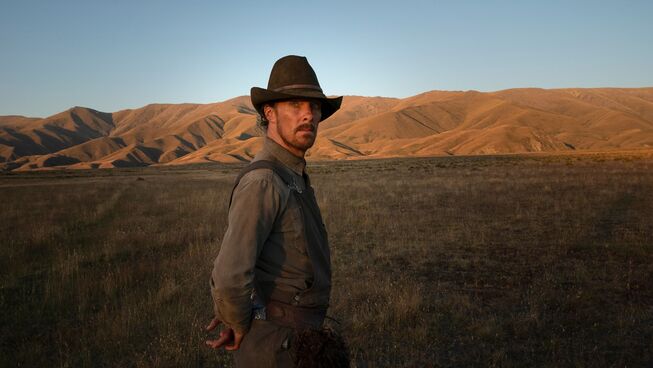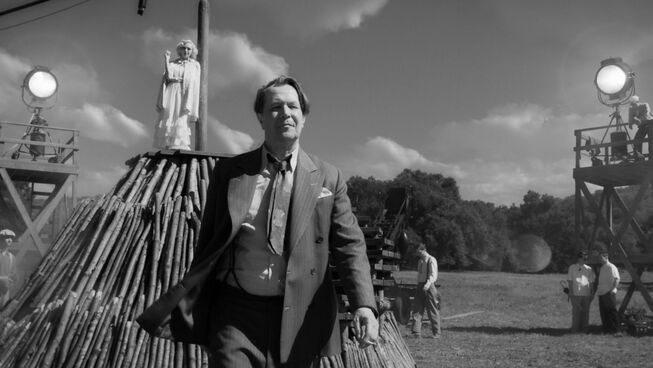
2.5 out of 5 stars
When it comes to modern screenplays, There can be as much to learn from the subtext as there is to discover from the actual storyline. While some films have the earmarks of a deeply thought-provoking context on the other end of the spectrum, they may have little to say in the end. It is difficult to determine where the latest from director Charlie McDowell (The One I Love) falls until the end. Even then, it may have many scratching their heads as to the point of the whole thing.
Jason Segel (The Muppets) plays the would-be thief who has managed to break into one of the world’s foremost tech billionaire's remote estate. With no real plan other than to steal some jewelry and whatever cash is lying around until the owners show up for a weekend away. Jesse Plemons (The Power of the Dog) fills the role of the software genius who has whisked his wife (Lilly Collins) away to escape their life for a while. Only to be surprised by the unwanted intruder who is left to keep the couple hostage until he can figure out what to do in this unexpected situation.
This collaborative effort which was co-written by McDowell, Segal and Justin Lader (Seven) looks to be a project that provided the creatives the opportunity to work through the COVID-influenced years. Minimalist and character-driven, the three leads must rely on a Hitchcockian tension to work out what they are doing on set. When they are given dialogue, Plemons, Segal and Collins do their best to embody the frustration of the situation and expose the backstory that each character brings to the storyline. Performances that manage to do the best with what they have been given despite being mere caricatures of the people they are meant to portray.
Without spoiling the end, the frustration will come for all who hold on until the conclusion. What looks to be a build-up to the big reveal or the development of each persona never really comes to fruition. McDowell does an admirable work by keeping the audience intrigued enough to remain committed until the end, then leaves us with little to embrace at the eventual outcome. Sadly, the primary role developed throughout the story’s arc is Plemon’s billionaire alter-ego. One that he commits to with convincing vigor. Yet, suppose they had done as much to build into all of these characters. In that case, the final scene may have been more satisfying, and the viewer's investment would have been rewarded.
Sadly, this review says as much about the film as the screenplay delivers. The message is unclear to what these talented individuals were even trying to say. Was it a statement on excessive wealth, good things happening to bad people or how money corrupts the hearts of mankind? In the end, it is difficult to know or even care.
Reel Dialogue: The issue is control
Who is really in control of this world? Watching Windfall shows that even though you might have all of the money in the world and a beautiful spouse, things are still outside of your control. One unassuming stranger with a gun shows that this is merely a pipe-dream to think that we are in control of our own destinies. Money, power and control are fleeting. Which begs the question of who is truly in control of this world?
Beyond all of the conspiracy theories, the answer may be easier to answer than you would think. Of all places to look, the Bible provides a solution to the question. Even when this world seems out of control, there is one who is all-knowing, all-powerful and everywhere. The God of the Bible continues to prove that despite what the media and entertainment tell us, he is in control.
Why not give it a read and see for yourself by starting with one of the biographies of Jesus or Romans.







